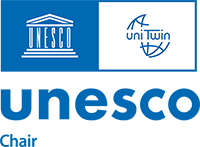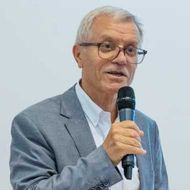- A
- A
- A
- ABC
- ABC
- ABC
- А
- А
- А
- А
- А
- HSE University
- UNESCO Chair on Future Studies
- News
- Director of the HSE International Research and Educational Foresight Centre Participated in UN Commission Meeting in Geneva
-
-
Education
-
Science
11 Myasnitskaya St., Moscow
+7 (495) 621-28-73
issek@hse.ru
Meissner D., Zhou Y., Fischer B. et al.
Technological Forecasting and Social Change. 2022. Vol. 178.
Abdrakhmanova G., Vasilkovsky S., Vishnevskiy K. et al.
M.: National Research University Higher School of Economics, 2022.
Saritas O., Burmaoglu S., Ozdemir D.
Futures. 2022. Vol. 137.
Sokolov A., Shashnov S. A., Kotsemir M. N.
In bk.: BRICS Comprehensive Innovation Competitiveness Report 2020. Scientific and technical documentation press, 2021. P. 36-98.

Director of the HSE International Research and Educational Foresight Centre Participated in UN Commission Meeting in Geneva

An intersessional meeting of the UN Commission on Science and Technology for Development took place on October 21–22, 2024, at the Palace of Nations in Geneva, Switzerland. Professor Alexander Sokolov presented new methods of scientific forecasting in his report titled ‘Science and Technology Foresight: Responding to New Agenda.’
The forum’s opening day theme was ‘Diversifying Economies in a World of Accelerated Digitalisation.’ Participants of the international conference discussed practical steps for implementing the Global Digital Compact, signed by world leaders on September 22, 2024, at the Future Summit in New York. According to participants, the Global Digital Compact serves as a roadmap for global digital cooperation. It leverages the potential of IT technologies to eliminate digital inequality. Speakers suggested that the Global Digital Compact could become a key framework for managing and regulating information technology and artificial intelligence.
The second day of the meeting was dedicated to ‘Technology Foresight and Technology Assessment for Sustainable Development.’ Representatives from national governments, international organisations, and the academic community took part in the discussion.
Technology foresight is the process of systematically evaluating future technologies. It often involves the use of technology forecasting, but it is not limited to this approach. The main goal of classical foresight is generally to inform and support decision-making on the steps needed to create or implement promising technologies.
Professor Alexander Sokolov, Director of the HSE International Research and Educational Foresight Centre, highlighted the new challenges facing technology foresight:
acceleration of technological development and the interconnectedness of technologies;
increased complexity of economic and social development processes;
growth in the number of unpredictable ‘wild card’ events;
a shortage of structured data amid an excess of unstructured data;
limitations of expert knowledge.
The Russian scholar emphasised the importance of developing and testing new foresight methods to create effective policies in an environment of growing and deep uncertainty.

Alexander Sokolov
‘New foresight methods allow for more accurate technological forecasts in situations of high turbulence and rapid shifts in trends,’ the professor noted.
- About
- About
- Key Figures & Facts
- Sustainability at HSE University
- Faculties & Departments
- International Partnerships
- Faculty & Staff
- HSE Buildings
- Public Enquiries
- Studies
- Admissions
- Programme Catalogue
- Undergraduate
- Graduate
- Exchange Programmes
- Summer Schools
- Semester in Moscow
- Business Internship
-
https://elearning.hse.ru/en/mooc/
Massive Open Online Courses
-
https://www.hse.ru/en/visual/
HSE Site for the Visually Impaired
-
http://5top100.com/
Russian Academic Excellence Project 5-100
- © HSE University 1993–2025 Contacts Copyright Privacy Policy Site Map
- Edit

